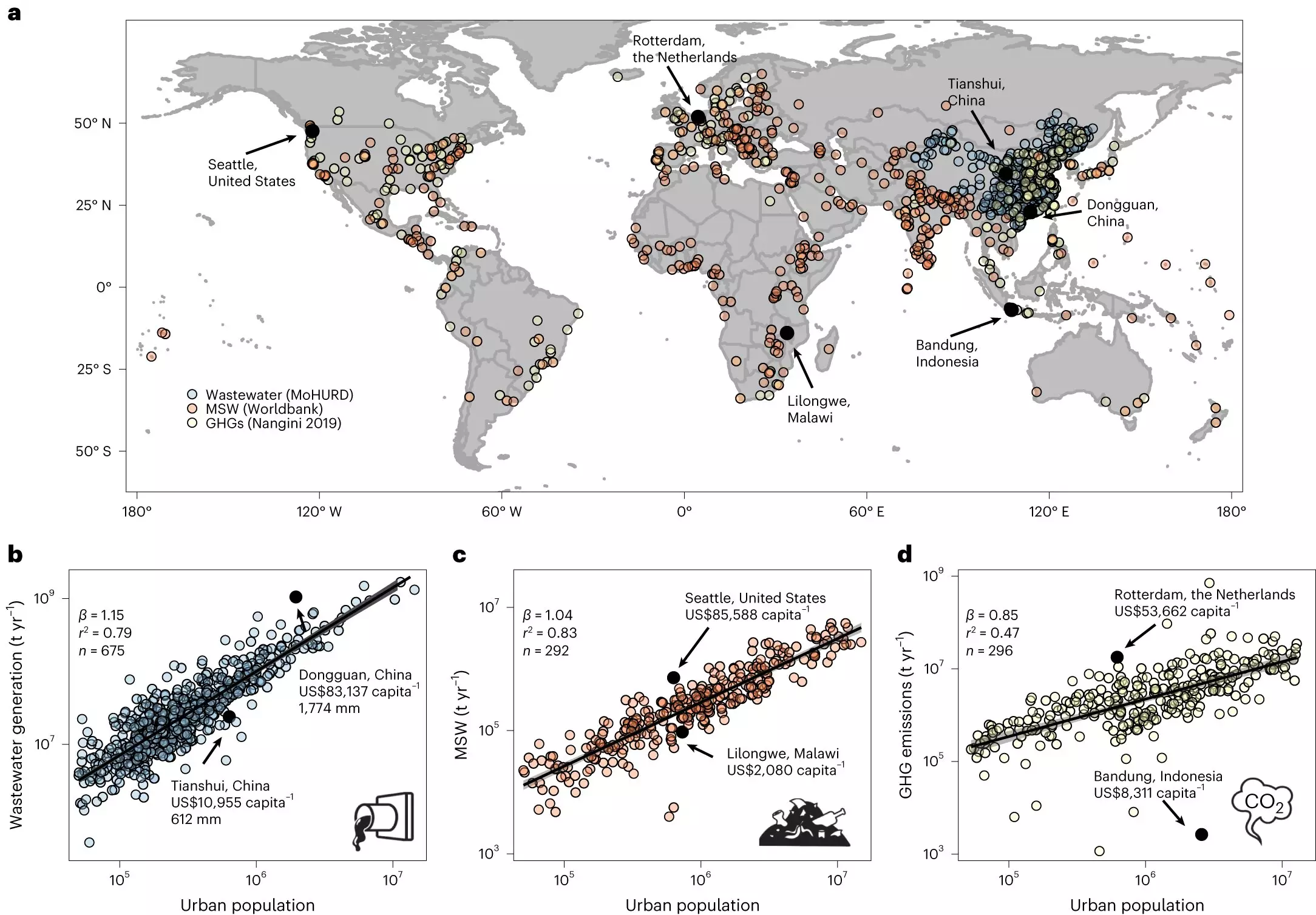Waste is an undeniable by-product of human activities and the natural processes of life on Earth. While living systems have evolved to tackle waste and reintegrate it into the ecosystem, human systems struggle to effectively manage waste. With the global population projected to continue growing and urbanization on the rise, waste has become a pressing global crisis. Microplastics contaminate the environment, wastewater pollutes waterways, and greenhouse gas emissions contribute to climate change. Society, however, tends to turn a blind eye to the unpleasant side of our production processes. Recognizing the significance of waste production, researchers from New York University and the Santa Fe Institute conducted a study using scaling theory to understand the relationship between urban systems and waste production. Their findings shed light on the efficiency of waste production as urban areas scale up and highlight the need for a new science of waste to guide sustainability efforts.
Applying scaling theory, the researchers examined waste products, including municipal solid waste, wastewater, and greenhouse gas emissions, from over a thousand cities worldwide. Scaling theory, commonly used in biology to study physiological changes in organisms concerning weight, offered insights into waste production as cities grow. By identifying overarching patterns, the researchers aimed to understand whether waste production becomes more or less efficient as urban areas expand.
The results of their study revealed distinct differences in waste production as cities grow. Solid waste, closely tied to individual consumption, exhibits linear scaling, increasing at the same rate as population growth. This suggests that as cities expand, solid waste production will also increase proportionally.
On the other hand, wastewater production exhibits superlinear scaling, meaning that larger cities produce a disproportionately larger amount of liquid waste compared to smaller cities. This finding highlights a concern for urban areas as they strive to manage and treat wastewater efficiently, especially amidst the surging trend of urbanization.
Interestingly, greenhouse gas emissions exhibit sub-linear scaling, implying that as cities grow, they contribute proportionately fewer greenhouse gas emissions. This unexpected finding can be attributed to the implementation of more efficient energy and transportation infrastructure in larger cities.
In addition to examining the scaling relationship between waste production and city size, the researchers also explored the influence of economic growth on waste generation. Their analysis revealed that cities with higher per-capita GDP generate more waste across the board. This realization underscores the connection between waste generation and economic growth, highlighting the need for sustainable waste management strategies accompanying urban development.
The study’s insights into waste production and the relationship between urbanization and waste generation emphasize the significance of developing a new science of waste. Understanding waste at a systemic level can help predict future urban ecosystem conditions and inform policies to reduce waste and enhance sustainability.
While waste continues to pose challenges for human systems, it is crucial to remember the remarkable adaptive abilities of other organisms. For example, fungi have developed the ability to decompose lignin waste from trees, creating sustainable ecosystems that have thrived for hundreds of millions of years. Drawing inspiration from nature’s solutions, researchers and policymakers can work together to develop innovative waste management strategies that promote a sustainable future for all.
Waste presents a complex and pressing global issue. As cities continue to expand and urbanize, waste production becomes a growing concern. By applying scaling theory, researchers have identified distinct patterns in waste production across different types of waste and city sizes. The findings underscore the need for a new science of waste that can guide efforts to predict and mitigate waste-related challenges. With concerted efforts and the adoption of sustainable waste management practices, we can work towards a future where waste is effectively managed and our environments thrive.



Leave a Reply